9 Ways to Save on Your Kitchen Remodel
A designer shares key areas where you can economize — and still get the kitchen of your dreams
When you’re investing in a home remodeling project, you want to make
sure that the results not only please you but add value to your home
and save you money. Never is that more true than in a kitchen remodel,
where costs can added up so quickly that your budget can all of a sudden
seem like pennies in a jar. To avoid that and keep costs in line, and
yet still get the kitchen of your dreams, here are a few of my favorite
ways of getting the most out of a tight budget.
1. Go with ready-to-assemble cabinets. The
biggest cost in a kitchen remodel is new cabinets. The most expensive
option is going custom, for which the cabinetry is designed, built and
installed to specifically fit your space. Exotic woods, ornate details
and period styles will add to the cost and delivery time but result in a
one-of-a-kind kitchen. Custom cabinets can cost $10,000 to $60,000, as
cabinets can range from $250 to $1,500 per linear foot.
If your budget doesn’t allow for custom, but you need new cabinets, ready-to-assemble (RTA) is a good option. Ready-to-assemble or semicustom cabinets can sometimes be half the cost, from around $125 to $900 per linear foot depending on the material, style and cost of installation. If you are a do-it-yourselfer, you can assemble these yourself; if not you will need to hire a contractor. Semicustom cabinets are selected from existing designs and are prefabricated offsite in standard sizes, with limited options in terms of sizing, styles, materials and finishes.
In-stock cabinets are for customers who want to grab their cabinets right off the shelf and get going. These stock cabinets come in standard sizes, shapes and colors. Since the cabinet dimensions are not based on your kitchen, space-wasting fillers may be required to make the cabinets fit. These cabinets are very affordable for remodelers on a budget. Cabinets can range from $75 to $400 per linear foot.
Keep in mind, though, that costs will vary by location.
If your budget doesn’t allow for custom, but you need new cabinets, ready-to-assemble (RTA) is a good option. Ready-to-assemble or semicustom cabinets can sometimes be half the cost, from around $125 to $900 per linear foot depending on the material, style and cost of installation. If you are a do-it-yourselfer, you can assemble these yourself; if not you will need to hire a contractor. Semicustom cabinets are selected from existing designs and are prefabricated offsite in standard sizes, with limited options in terms of sizing, styles, materials and finishes.
In-stock cabinets are for customers who want to grab their cabinets right off the shelf and get going. These stock cabinets come in standard sizes, shapes and colors. Since the cabinet dimensions are not based on your kitchen, space-wasting fillers may be required to make the cabinets fit. These cabinets are very affordable for remodelers on a budget. Cabinets can range from $75 to $400 per linear foot.
Keep in mind, though, that costs will vary by location.
2. Keep existing cabinets if possible. If
your cabinets are good quality and you like the style, resurfacing is a
great option. It’s amazing how color can transform a kitchen and a few
coats of paint can give life to a once-drab space. Resurfacing and
painting make for the most cost-effective option, but ensure that you
take the steps needed to get a beautiful finish.
A simple paint job might cost a few hundred dollars. But for a more extensive refacing job, $5,000 to $15,000 is likely if new veneer is added to the face of the cabinets.
See how to reface your kitchen cabinets
A simple paint job might cost a few hundred dollars. But for a more extensive refacing job, $5,000 to $15,000 is likely if new veneer is added to the face of the cabinets.
See how to reface your kitchen cabinets
3. Choose open shelving where possible. Open
shelving creates interest in the space as well as saves money. Using
salvaged wood or painted planks from your local hardware store for
shelving is a cost-effective and functional option to display everyday
dishes (items that don’t spend enough time on the shelf to accumulate
dust).
Open shelving can save a few thousand dollars, but while it may be tempting to do away with fitted cabinets altogether, they’re still valuable and efficient for storage, particularly if you have a small kitchen and a lot to pack into it.
Open shelving can save a few thousand dollars, but while it may be tempting to do away with fitted cabinets altogether, they’re still valuable and efficient for storage, particularly if you have a small kitchen and a lot to pack into it.
4. Consider alternative countertop materials. There
is a wide range of countertops to choose from — solid surfaces,
recyclable products, concrete, tile, stone and more. Granite is still a
popular choice for countertops, but at $50 to $100 or more per square
foot installed, it can push any budget over the top. Consider
using two different surfaces instead, such as making the outside
perimeter butcher block and the island granite. This can cut the cost
in half.
See more on granite
If granite is not in the budget but you like the look of stone, consider laminate, an inexpensive alternative. The costs ranges from $8 to $20 per square foot, including installation. Laminate has come a long way with its high-definition selections and new cut-edge profiles. The new laminates look so much like stone, you could be easily fooled.
See more on laminate
See more on granite
If granite is not in the budget but you like the look of stone, consider laminate, an inexpensive alternative. The costs ranges from $8 to $20 per square foot, including installation. Laminate has come a long way with its high-definition selections and new cut-edge profiles. The new laminates look so much like stone, you could be easily fooled.
See more on laminate
5. Keep appliances where they are. If
your plan is to get new cabinets, think about keeping your appliances
where they are. Moving the mechanics and electrical for appliances can
be costly, not to mention the ceiling on the floor below and the walls
may need to be cut into to expose the mechanicals. These are costs that
many homeowners don’t think about when planning a kitchen remodel.
Keeping the appliances where they are will save you thousands of dollars. More often than not, moving an appliance 1 foot costs as much as moving it 6 feet, depending on where the mechanicals are located.
Keeping the appliances where they are will save you thousands of dollars. More often than not, moving an appliance 1 foot costs as much as moving it 6 feet, depending on where the mechanicals are located.
6. Look at different options for islands. A
6-foot island with new cabinets can run $800 and up. Instead of using
cabinets for your kitchen island, think of repurposing a piece of
furniture. An old table or a dresser is a great alternative to bring
unique character into the space. Keep an eye on Craigslist, the Houzz Shop,
salvage stores, estate sales and garage sales. Depending on how
resourceful you are, you can save yourself hundreds of dollars.
Tip: When looking for a piece, make sure it is countertop height (36 inches).
Tip: When looking for a piece, make sure it is countertop height (36 inches).
7. Opt for a cutout rather than removing a wall. Many homeowners want to open the space between the kitchen and their family room to create an open floor plan. When removing a wall,
there are many things to consider. Is it load bearing? Does it have
venting, water pipes or electrical running through it, which will need
to be rerouted? After removing a wall, the ceiling, other walls and
floor may need to be cut into and repaired.
A less expensive option to consider is a cutout. Not only does it open a room, but it can provide extra countertop space and an area for additional seating. You will still need to check for mechanics and plumbing, but the floor and ceiling will not need to be repaired, which will save you money.
See more about removing a wall
A less expensive option to consider is a cutout. Not only does it open a room, but it can provide extra countertop space and an area for additional seating. You will still need to check for mechanics and plumbing, but the floor and ceiling will not need to be repaired, which will save you money.
See more about removing a wall
8. Try track lighting instead of recessed lighting. Adding
recessed lighting can become a bigger project than planned. Holes need
to be cut into the ceiling, electrical wiring needs to be added, and
there may be hidden costs in repairing the ceiling. The overall cost for
a single recessed light is $100 to $150, including the costs for
materials and an electrician. This can add up quickly.
To keep costs down, think about track lighting. There are many styles, shapes and finishes. They give off plenty of light for tasks in the kitchen and, when placed on a dimmer, give off a nice ambient light.
See more on recessed lighting
To keep costs down, think about track lighting. There are many styles, shapes and finishes. They give off plenty of light for tasks in the kitchen and, when placed on a dimmer, give off a nice ambient light.
See more on recessed lighting
Backsplashes can be put up anytime after your countertops and cabinets have been installed. If you can’t stand looking at Sheetrock, think about wallpaper, an easy project that’s also easy on the wallet.
Adding glass to your cabinet doors is a project that can be done anytime that’s simple and low cost.
Changing out hardware is one project that can cost hundreds. If the new hardware works with the current hole placement on your cabinet doors and drawers, you can hold off on replacing it at a later date.



Ron Goldstein,MBA
Certified Luxury Broker@Berkshire Hathaway Chicago & St. Petersburg
Principal, Silver Professionals
chicagoluxuryrealty.com stpeteluxuryrealty.com silverprofessionals.com
(o)312-264-5846 (c)312-771-7190 (f)312-264-5746
Offices in Chicago and St. Petersburg
Connecting people w/ jobs & homes!
2014 President's Circle

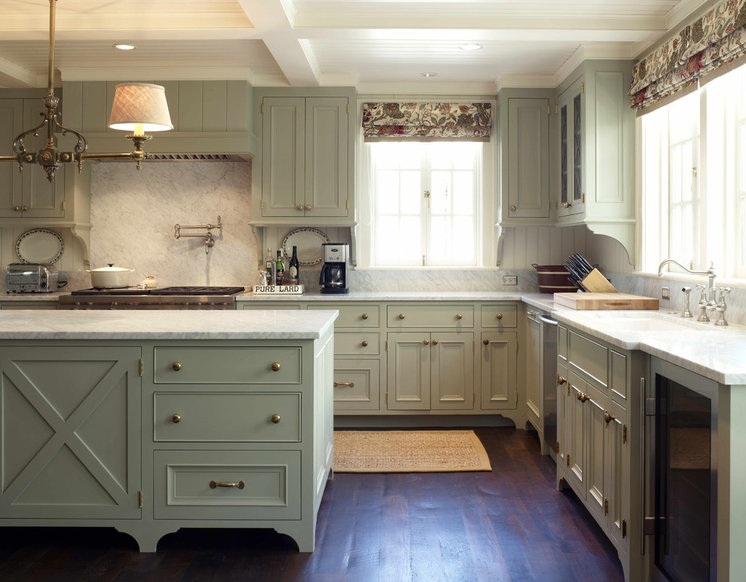
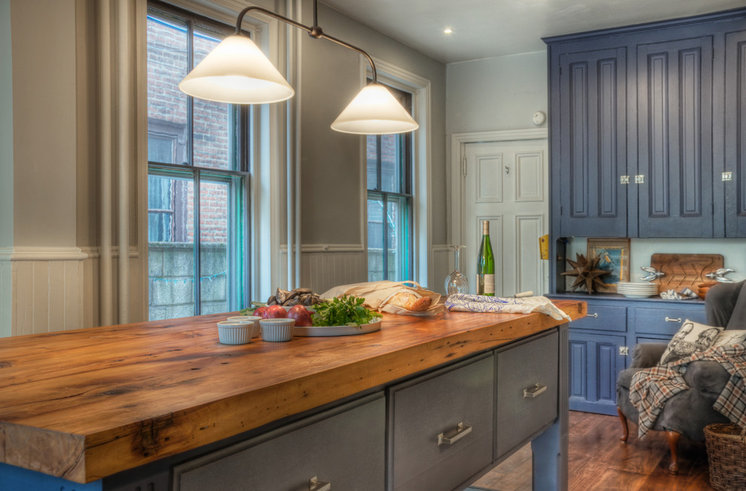
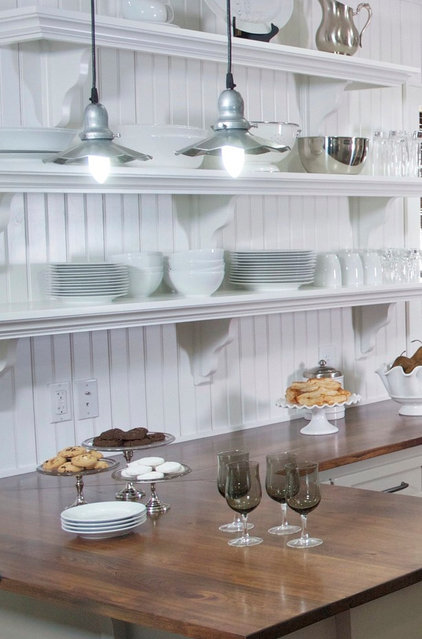
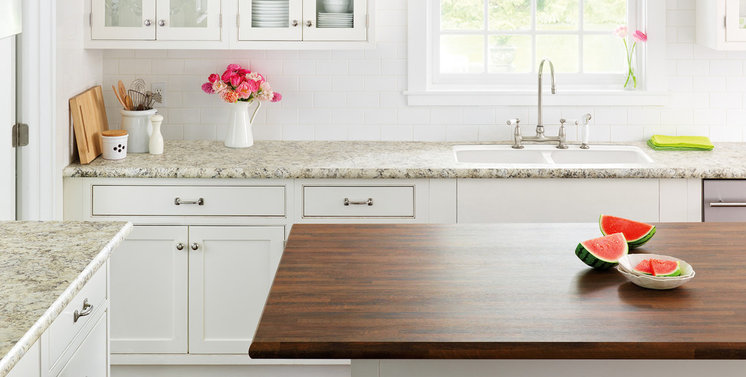
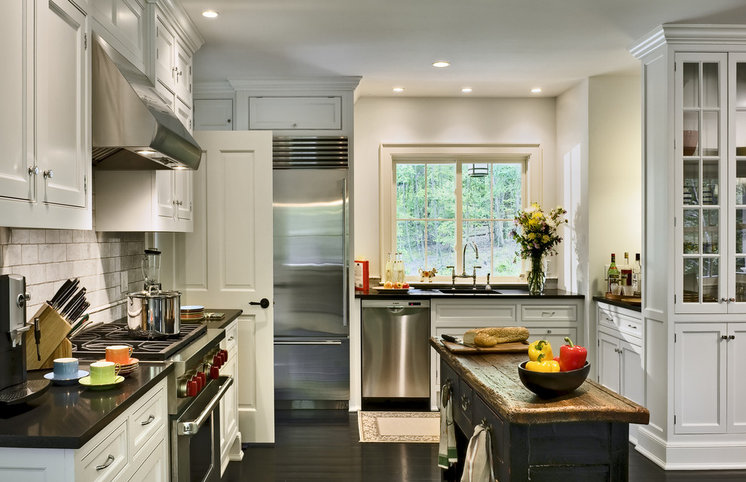
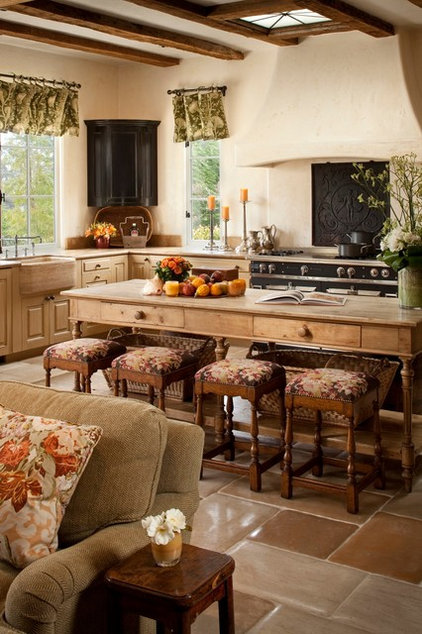
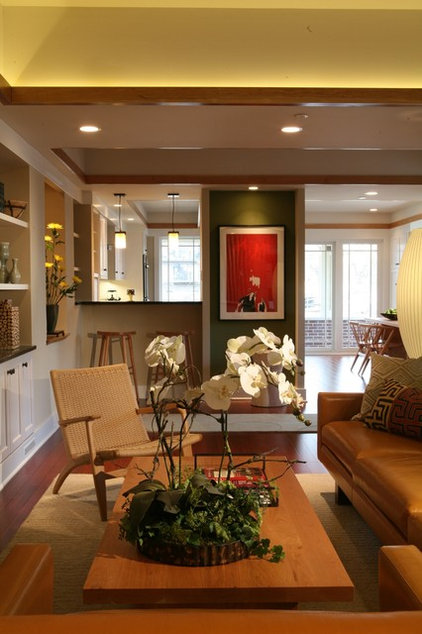
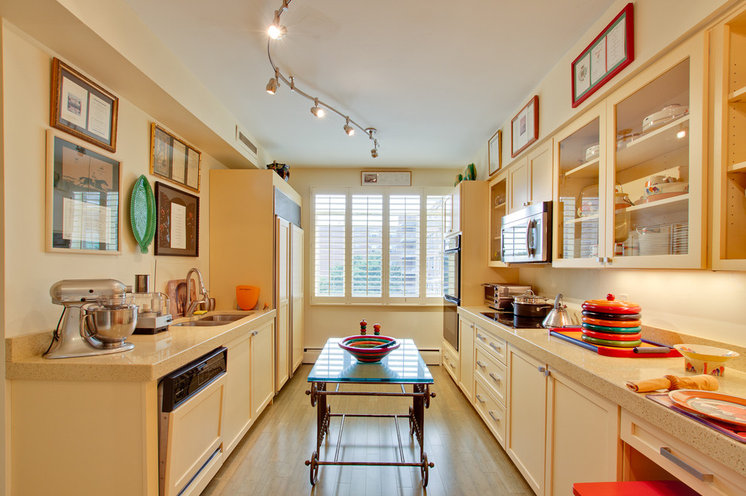
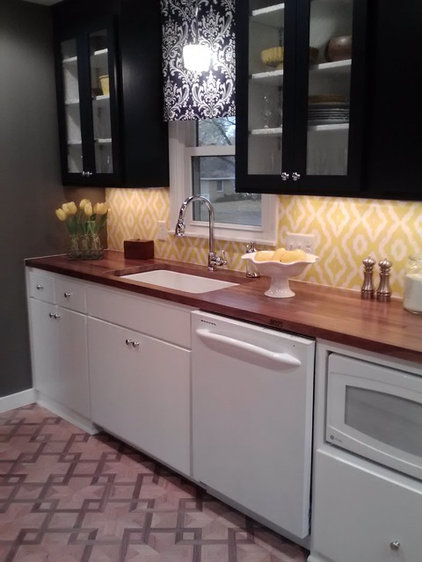

No comments:
Post a Comment